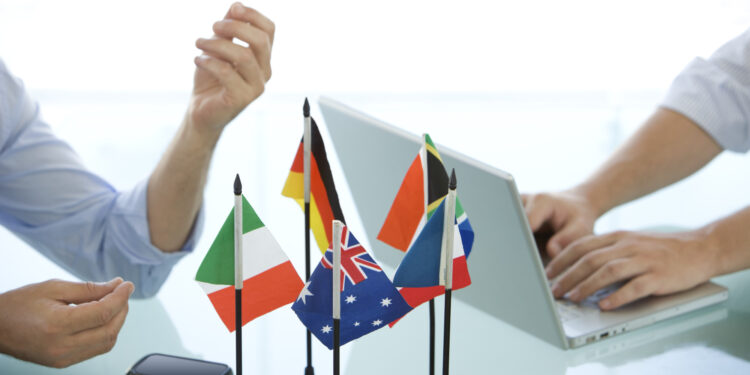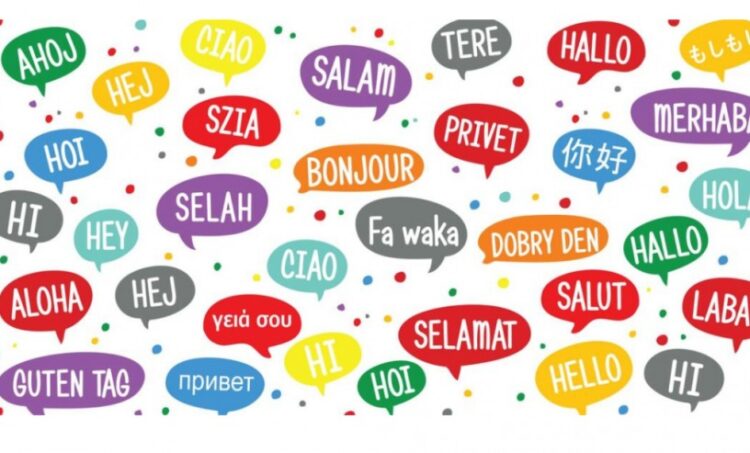To effectively implement an international marketing strategy, it is crucial to translate your content and expand your reach to a broader audience. When businesses aim to target a global audience that speaks multiple languages beyond English, relying on professional translation services becomes a necessity.
Artificial intelligence-based tools utilized by your team will not be sufficient at this advanced level.
A comprehensive understanding of the target market is essential in this regard. To guarantee the success of your international marketing campaign, it is advisable to contemplate utilizing professional translation services based on the language requirement.
For example, there are Spanish translation services that offer translation of the available content into the Spanish language.
Importance Of Translation

Implementing a multilingual marketing strategy can give your company a competitive advantage and enable you to reach your target consumer base.
Establishing clear communication with customers in their language is vital for nurturing trust and building strong relationships.
Here are a few major advantages of translating your marketing content into global languages:
Elevates The Global Brand Perception
Cultural elements play a pivotal role in any campaign, be it international or targeting multi-ethnic consumers. To enhance trust and generate interest in your company, your written communication must resonate with the brand’s image and identity in the readers’ native language.
Attain A Competitive Edge
Experiencing language difficulties can create significant discomfort and establish an emotional barrier between your business and potential customers.
Improves The Customer Experience
In the interconnected world, we live in, viral marketing can greatly enhance the customer experience for businesses. This reality suggests that your brand might already have a substantial following beyond your country of origin, even without your awareness.
According to a report, more than 70% of consumers are willing to pay a premium if a company tries to provide information in their language.
Comply With Legal Obligations
Depending on your product, many countries may mandate the translation of paperwork into their native language. Today, localization has become a legal obligation rather than a choice. Typically, your trade advisor can help identify which documents require translation.
For instance, when selling and shipping goods outside the United States, you need standard documents to export. Translation services are commonly utilized for legal document export purposes, including commercial invoices, export licenses, export compliance documents, and transportation documents.
How Can You Use Marketing Translation For International Reach
Creating an international marketing campaign requires more than a straightforward, literal translation. Merely converting your message word for word can lead to the loss of its essence and meaning.
In the most severe cases, your message may come across as insensitive to the people and culture of the target country.
To address this challenge, here are valuable suggestions for leveraging international translation services for global marketing:
Curate Simple Content
To minimize costs and ensure efficient localization, it is essential to create straightforward content. Simplifying the content helps maintain project timelines and saves time by avoiding issues associated with translating inappropriate or ambiguous language.
When writing, strive for clarity and brevity. Avoid using idioms, insider jokes, phrasal verbs, and overly complex language as they often do not translate effectively and can negatively impact your brand and the overall quality of your content.
If their usage is necessary, provide precise instructions to linguists, ensuring they fully understand the intended message you wish to convey.
Hire An Expert

The importance of translation in global marketing cannot be emphasized enough. As a result, we strongly recommend collaborating with a certified language expert who possesses both marketing expertise and in-depth knowledge of your industry.
Given the contextual nature of marketing, it is crucial to select a provider who is proficient in transcreation and adaptation. It ensures that your chosen professional has the necessary skills to adapt your content creatively and effectively for different cultural and linguistic contexts.
Have A Robust Brief
To facilitate the translation of your text, provide your translator with comprehensive information. Prepare a document encompassing your company’s brand identity, target audience, historical background, product specifications, and marketing goals.
When crafting your content in English, exercise caution in selecting essential terms. By initially developing an English glossary, you can subsequently translate these key terms into other languages with minimal effort.
This approach proves more convenient than having each linguist individually research and define terms. Implementing this strategy empowers your translator to produce content that better reflects the cultural nuances of your business.
Use Tools Effectively
You need to invest in translating services to get the content in multiple languages in technology that can effectively manage the intricacies and quantity of your content. Our primary recommendation is to utilize a localization platform, which streamlines the optimization of your website for seamless use by foreign language customers.
In comparison to manual approaches employed by other companies, this type of tool significantly reduces both time and administrative expenses. When evaluating various localization platforms, prioritize those offering advanced features to enhance efficiency and automated workflows.
Such tools will prove indispensable in meeting deadlines within a multi-language localization ecosystem.
Conduct A Trial
Identifying and rectifying mistakes during the prototype stage is easier compared to addressing them after the final product is released. Utilize tools like focus groups to assess the reception of your copy and marketing materials in foreign markets.
If your budget allows, consider engaging a second translation company or an independent translator to evaluate the original text. This comprehensive approach will help ensure the quality and effectiveness of your content abroad.
Keep Track Of Your Results

Without awareness of the specific problem and its location, it becomes impossible to adjust your international marketing initiatives. To address this, establish a clear objective and align your marketing strategy, accordingly, enabling you to evaluate its effectiveness.
By connecting your marketing strategy to a concrete goal, you gain the ability to assess its success and make informed modifications as necessary.
Conclusion
When targeting a global audience as digital marketers, it’s crucial to recognize that a significant portion of this audience requires English proficiency. However, many individuals still prefer consuming content in their native language rather than English.
That’s why offering your marketing content in the native language of your target country yields benefits beyond attracting visitors from different regions. It more meaningful connections with clients and enhances your business’s overall performance.
 Hi Boox Popular Magazine 2024
Hi Boox Popular Magazine 2024



